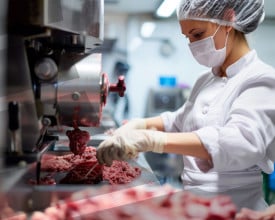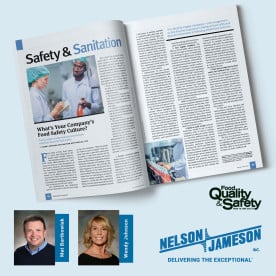hygiene
- May 03, 2021
As an employee of Nelson-Jameson for seven years now, I am continuously impressed with the number of projects and developing capabilities that are in process. All of these undertakings are done with one aim in mind: to help our customers create safe, quality food in the most efficient way possible. With this in mind, we actively seek out services, above and beyond our products and programs, to holistically meet our customer’s needs. Here are just a few of the programs that we offer, that you may not be aware of:
Lab Design & Furniture: Yes, you read that right! We partner with PSA Lab Furniture to offer lab design and lab furniture services. Through this partnership, we are able to offer free design plans and estimates for your next lab revamp or new lab construction. We’re talking hoods, surface tops, cabinets, etc. Coupled with our wide range of
- July 20, 2020
Have you ever missed one or two of your normal tooth-brushing sessions, and found your tongue traversing over a disconcertingly slimy layer coating your chompers? Well, welcome to the disturbing and quite fascinating world of biofilms. These hearty amalgams of microbiological activity provide both protection for microorganisms, as well as headaches for not only those avoiding plaque build-up, but most importantly for this blog, the food industry (allowing harborage and protection for bacteria and fungi).
Biofilms can form on a variety of surfaces in food processing environments, including stainless steel. A supercell of harborage, “Biofilms are complex microbial ecosystems formed by one or more species immersed in an extracellular matrix of different compositions depending on the type of food manufacturing environment and the colonizing species” (Geaile, et al). The
- April 09, 2013
When it comes to food illness, such names as Listeria, E.coli, etc. might be familiar. A name that may be more of a surprise to some is "Hepatitis." More specifically, Hepatitis





